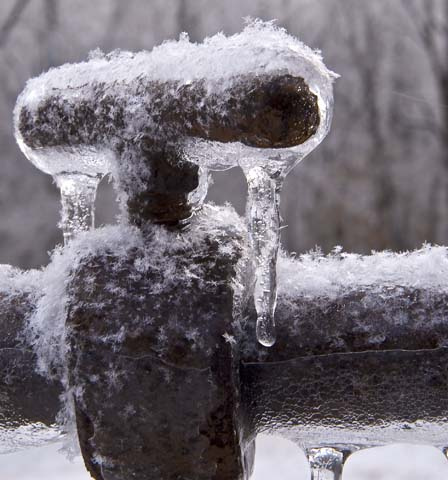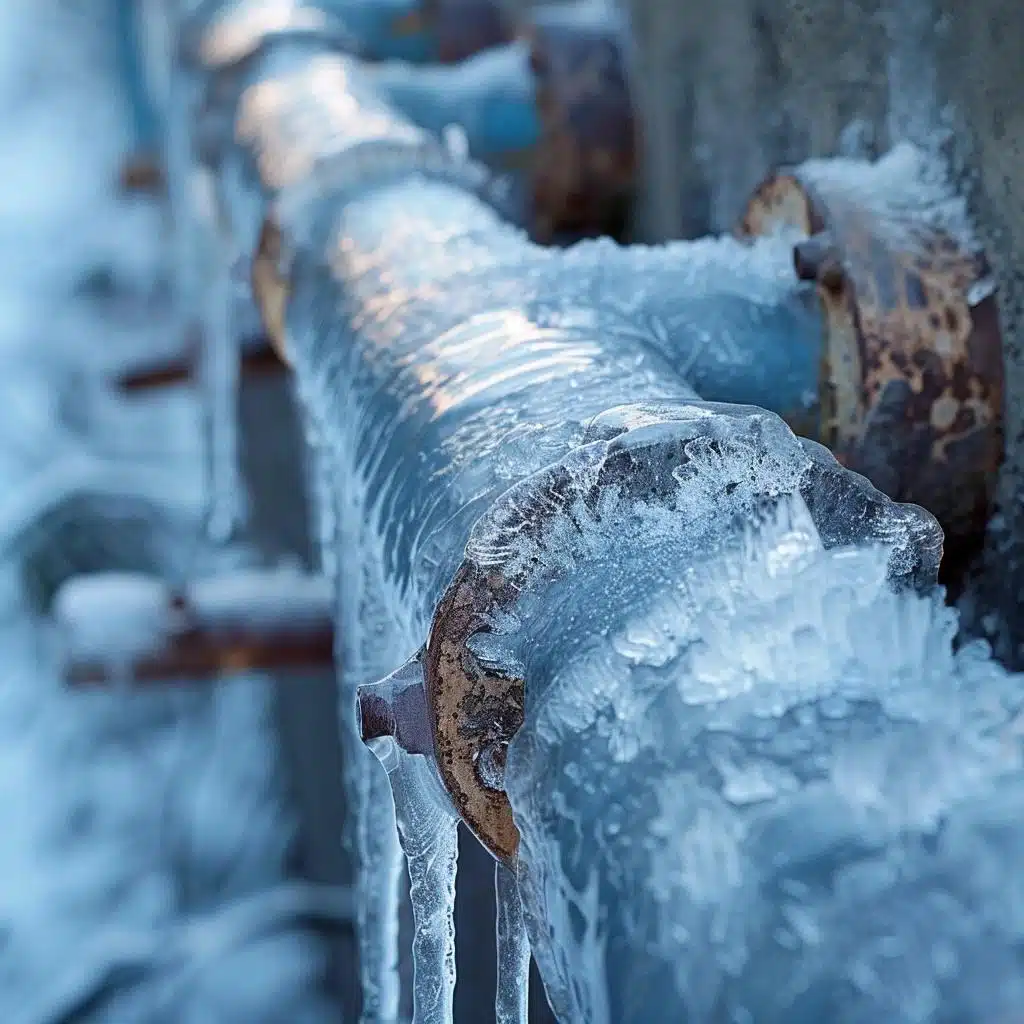Preventing Pipes from Freezing: Effective Strategies
Preventing Pipes from Freezing: Effective Strategies
Blog Article
What are your thoughts about Preventing and dealing with frozen pipes?

Cold weather can ruin your pipes, particularly by freezing pipes. Right here's exactly how to prevent it from taking place and what to do if it does.
Intro
As temperatures decrease, the risk of frozen pipes rises, potentially resulting in costly fixings and water damage. Understanding how to prevent frozen pipes is vital for property owners in cool climates.
Recognizing Icy Pipelines
What triggers pipelines to freeze?
Pipes freeze when subjected to temperatures below 32 ° F (0 ° C) for prolonged durations. As water inside the pipelines ices up, it increases, putting pressure on the pipeline wall surfaces and potentially triggering them to break.
Threats and problems
Frozen pipelines can lead to water supply disruptions, property damage, and expensive repairs. Ruptured pipes can flood homes and trigger considerable architectural damages.
Indications of Frozen Pipes
Determining frozen pipelines early can prevent them from bursting.
Just how to determine icy pipelines
Try to find decreased water circulation from taps, uncommon smells or noises from pipes, and visible frost on subjected pipelines.
Prevention Tips
Shielding susceptible pipelines
Cover pipelines in insulation sleeves or use warm tape to shield them from freezing temperatures. Focus on pipes in unheated or outside areas of the home.
Home heating methods
Keep interior areas appropriately heated, particularly locations with plumbing. Open up cabinet doors to enable cozy air to distribute around pipes under sinks.
Shielding Exterior Plumbing
Yard hose pipes and exterior faucets
Detach and drain garden hose pipes prior to winter. Install frost-proof spigots or cover exterior taps with insulated caps.
What to Do If Your Pipes Freeze
Immediate actions to take
If you think icy pipes, keep taps open to soothe pressure as the ice thaws. Make use of a hairdryer or towels taken in hot water to thaw pipes slowly.
Long-Term Solutions
Structural adjustments
Think about rerouting pipelines away from exterior walls or unheated areas. Add added insulation to attic rooms, basements, and crawl spaces.
Updating insulation
Buy top quality insulation for pipelines, attic rooms, and walls. Appropriate insulation helps keep regular temperature levels and decreases the danger of icy pipes.
Verdict
Protecting against frozen pipelines calls for aggressive actions and fast feedbacks. By recognizing the causes, indicators, and preventive measures, house owners can shield their plumbing throughout cold weather.
Helpful Tips to Prevent Frozen Pipes this Winter
UNDERSTANDING THE BASICS: WHY PIPES FREEZE AND WHY IT’S A PROBLEM
Water freezing inside pipes is common during the winter months, but understanding why pipes freeze, and the potential problems it can cause is crucial in preventing such incidents. This section will delve into the basics of why pipes freeze and the associated problems that may arise.
THE SCIENCE BEHIND FROZEN PIPES
When water reaches freezing temperatures, it undergoes a physical transformation and solidifies into ice. This expansion of water as it freezes is the primary reason pipes can burst. As the water inside the pipe freezes, it expands, creating immense pressure on the walls. If the pressure becomes too great, the pipe can crack or rupture, leading to leaks and water damage.
FACTORS THAT CONTRIBUTE TO PIPE FREEZING
Low Temperatures: Extremely cold weather, especially below freezing, increases the risk of pipes freezing. Uninsulated or Poorly Insulated Pipes: Pipes located in unheated areas, such as basements, crawl spaces, or attics, are more prone to freezing. Insufficient insulation or lack of insulation altogether exacerbates the problem. Exterior Wall Exposure: Pipes running along exterior walls are susceptible to freezing as they encounter colder temperatures outside. Lack of Heating or Temperature Regulation: Inadequate heating or inconsistent temperature control in your home can contribute to frozen pipes. PROBLEMS CAUSED BY FROZEN PIPES
- Pipe Bursting: As mentioned earlier, the expansion of water as it freezes can cause pipes to burst, resulting in significant water damage.
- Water Damage: When pipes burst, it can lead to flooding and water damage to your property, including walls, ceilings, flooring, and personal belongings.
- Structural Damage: Prolonged exposure to water from burst pipes can compromise the structural integrity of your home, leading to costly repairs.
- Mold and Mildew Growth: Excess moisture from water damage can create a favorable environment for mold and mildew growth, posing health risks to occupants.
- Disrupted Water Supply: Frozen pipes can also result in a complete or partial loss of water supply until the issue is resolved.
WHY CERTAIN PIPES ARE MORE PRONE TO FREEZING
- Location: Pipes located in unheated or poorly insulated areas, such as basements, crawl spaces, attics, or exterior walls, are at higher risk of freezing.
- Exterior Pipes: Outdoor pipes, such as those used for irrigation or exposed plumbing, are particularly vulnerable to freezing as they are directly exposed to the elements.
- Supply Lines: Pipes that carry water from the main water supply into your home, including the main water line, are critical to protect as freezing in these lines can affect your entire plumbing system.
- Underground Pipes: Pipes buried underground, such as those connected to sprinkler systems or outdoor faucets, can be susceptible to freezing if not properly insulated.
https://busybusy.com/blog/helpful-tips-to-prevent-frozen-pipes-this-winter/

I stumbled upon that write up on How to Prevent Your Pipes From Freezing when looking around the internet. Loved our entry? Please share it. Help other people check it out. We appreciate reading our article about How to prepare your home plumbing for winter weather.
Top Article Report this page